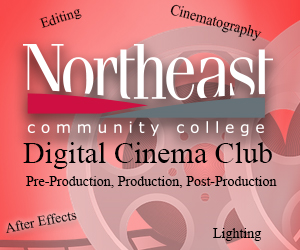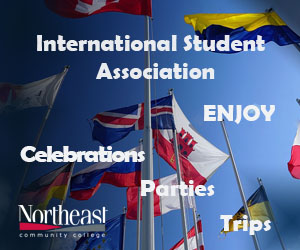How you can help prevent suicide
October 1, 2020
Roughly every 40 seconds a person dies from suicide, that’s over 800,000 deaths are from suicide per year. Fortunately, there is help available for NECC students.
September is suicide awareness month. But that doesn’t mean people only get to talk about it during this time. Suicide is a much bigger issue in the world today than it has ever been before. What is there to know about reaching out to others who are struggling or how to get the help you need yourself. There are many opportunities to seek help here on campus.
Stephanie Brundieck is the guidance counselor here at Northeast. She as well as faculty and student assistants are all trained in what is called QPR. It means question, persuasion and refer. Members of the care team are trained to respond to students who may be showing signs of suicidal thoughts or actions. They meet every few weeks to talk about ways to help students who may be struggling to get help. During meetings they may bring up people’s concerns for others and ways to assist them as well. The care team is also made up faculty from TRIO, the disability center, student life and academic support Stephanie says.
“If you notice a student’s showing signs of suicidal thoughts on actions be honest and open with them,” Brundieck said.
There are many ways for students to get help if they’re struggling with mental health. The school’s counselor website has more than enough information and resources to use. There is a student assessment link on the website where students can evaluate where they stand with any mental health issues they might be experiencing. After they take the assessment, they are then referred to contact numbers to reach out to get the help they need.
Not every option or counselor will work for every person. If you decide to take the next step and receive help from a counselor don’t assume the first counselor you visit will be the right fit for you Stephanie says.
“I might not be the best fit for every student on campus, but I can refer students to different counselors that seem fit,” Brundieck said.
For peoples first time visiting a counselor they want the best experience and all their questions answered right away. That may not always be the case. Finding a counselor can take some trial and error, but students shouldn’t give up Stephanie says.
Always be kind and acknowledge that you might know what someone is dealing with all the time. Northeast strives for a safe and healthy environment for students to interact in. Reaching out to someone and asking if they need reassurance could save a life Stephanie says.
“It is safe to tell someone that you are worried for them, assure them that there is hope and that there is help,” Brundieck said.
Where to get help
The National Suicide Hotline: 800-273-8255
Northeast’s counselors’ number: 402-844-7277
Northeast counselors’ website and how to get there: On Northeast’s home page under the Student Experiences tab click the support services link, then click the Counseling Services box, you will then find all mental health related resources down below.











